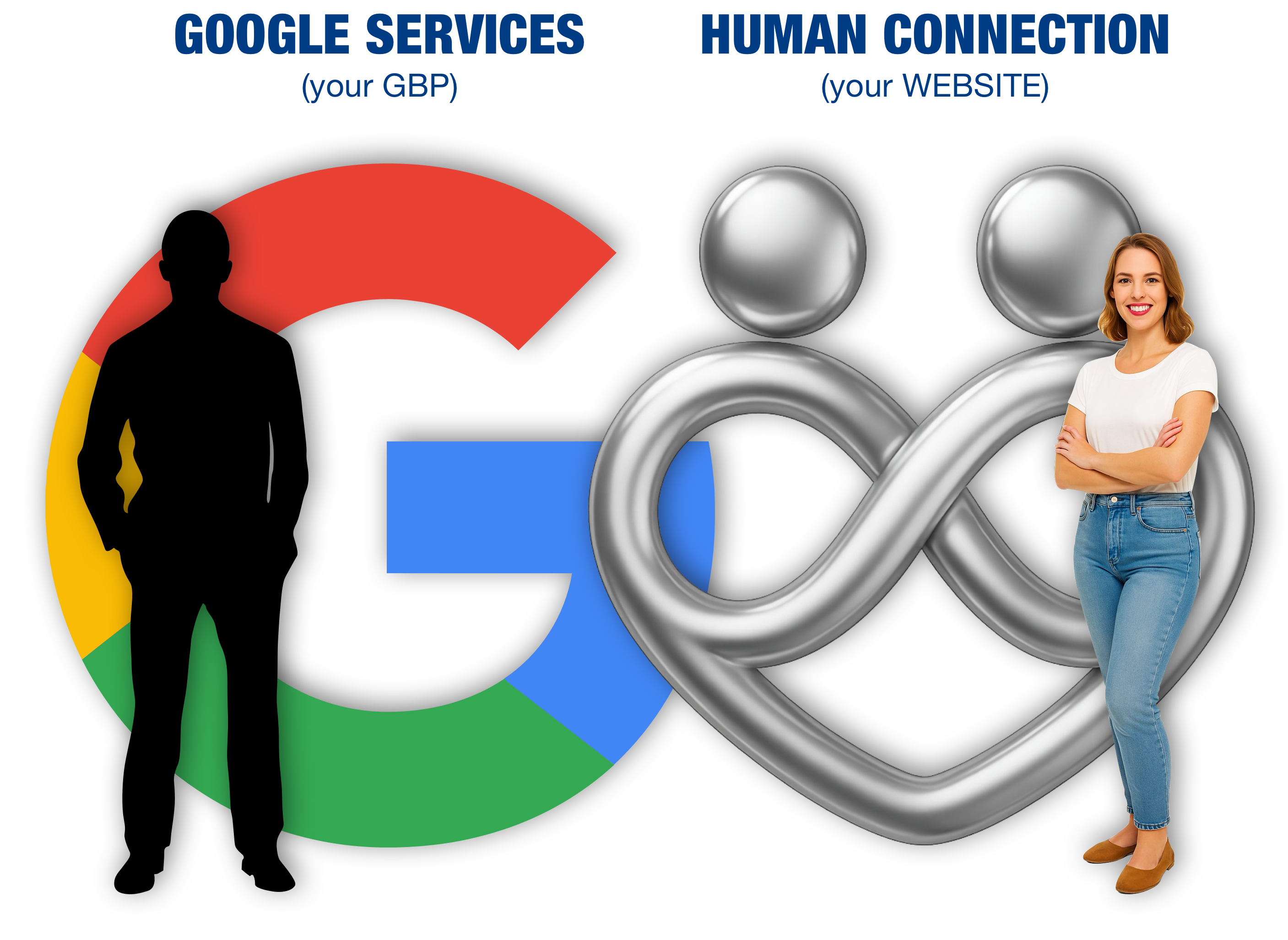Why “Services” Matter More to Google Than You Think – And Why Your Story Still Matters More to Humans
Every once in a while, I get into a project that reminds me why strategy matters more than design, more than trends, and definitely more than guesswork. This week, that moment came while Jason and I were preparing for a new client meeting for Revive Timberworks, a high-craft timber-framing company owned by a solid guy named Colin Graat.
We haven’t even built anything yet. Jason hasn’t even had a proper meeting with Colin. But the preparation alone? It turned into a masterclass on how Google thinks… and how customers think.
And those two things are very different.

Google Wants Clarity. Humans Want Connection.
While Jason and I were sketching out the navigation and content structure for Colin’s new website, one thing became very clear, very fast:
Google expects to see a “Services” page.
Not “Our Craft”.
Not “What We Do”.
Not “Why We Love Wood”.
Just… “Services”.
Is it warm? No.
Is it poetic? No.
Does it match the High-S / High-C personality profile we identified for Colin’s ideal audience? Not at all.
But here’s the truth:
Google doesn’t care about your brand personality. It cares about categorizing your business.
A “Services” page tells the algorithm:
- what you do
- where you do it
- and why you’re relevant for a searcher’s intent
If Google can’t figure that out in the first few seconds, you’re invisible.
But here’s the twist.
If You Only Build for Google, You Lose the Human Being
The best websites are bilingual: they speak Google’s language and your customer’s language at the same time.
That’s where “Our Craft” comes in.
“Services” gives Google the structure it needs.
“Our Craft” gives the customer the emotional trust they need.
It’s the difference between:
“Here are the things we do,”
and
“Here’s who we are, why we care, and why this means something.”
When you’re dealing with a craft as old and as meaningful as mortise-and-tenon timber framing, you can’t not tell that story. Your ideal customer needs it to trust you.
So Which One Matters More?
Both.
And that’s the part most website builders miss.
Most designers either:
- build a site for Google, and it ends up cold, clinical, and lifeless, or
- build a site for humans, and Google ignores it
But the websites that perform year after year?
They’re built for both audiences at the same time.
That’s what we’re doing with Revive Timberworks.
The Strategy We Landed On
Jason was right – we absolutely need a Services tab. Google expects it, and it’s essential for ranking.
But I was right too – Colin’s audience needs Our Craft, the warm emotional page that speaks to heritage, craftsmanship, tradition, and trust.
So the structure becomes powerful:
Services = Google-facing
Our Craft = Human-facing
One delivers clarity.
One delivers connection.
Together, they deliver conversions.
The Lesson for Every Business Owner
Whether you’re a carpenter, an electrician, a chiropractor, or a restaurant owner – the same rule applies:
Google decides how people find you. Humans decide whether they trust you.
If your website isn’t built for both, you’re leaving money on the table.
And One Last Thing About Local Dominance…
When we suggested adding “Niagara” into Colin’s metadata or tagline, he was understandably hesitant. He works outside the Niagara Region too. He doesn’t want to box himself in.
But here’s the thing:
Local dominance actually expands your reach.
You win locally, and Google starts trusting you regionally.
You win regionally, Google starts showing you provincially.
It snowballs.
We saw it with Architectural Copper. We didn’t even change his legal name – just optimized his website and Google Business listing – and his calls increased province-wide.
SEO plays long ball. And it wins.
Wrapping Up
This entire conversation – before the first meeting, before the first mockup, before the first line of copy – shows something important:
Strategy comes first. Always.
You don’t build a website and then “figure out SEO later”. You architect the SEO, the structure, and the emotional messaging before writing a single line.
That’s what separates a website that sits quietly online… from one that builds a business.
And if you’re reading this on Doncor.com – congratulations. You’re already thinking smarter than most business owners out there.
Thanks for checking out my blog and kind regards,
Don

